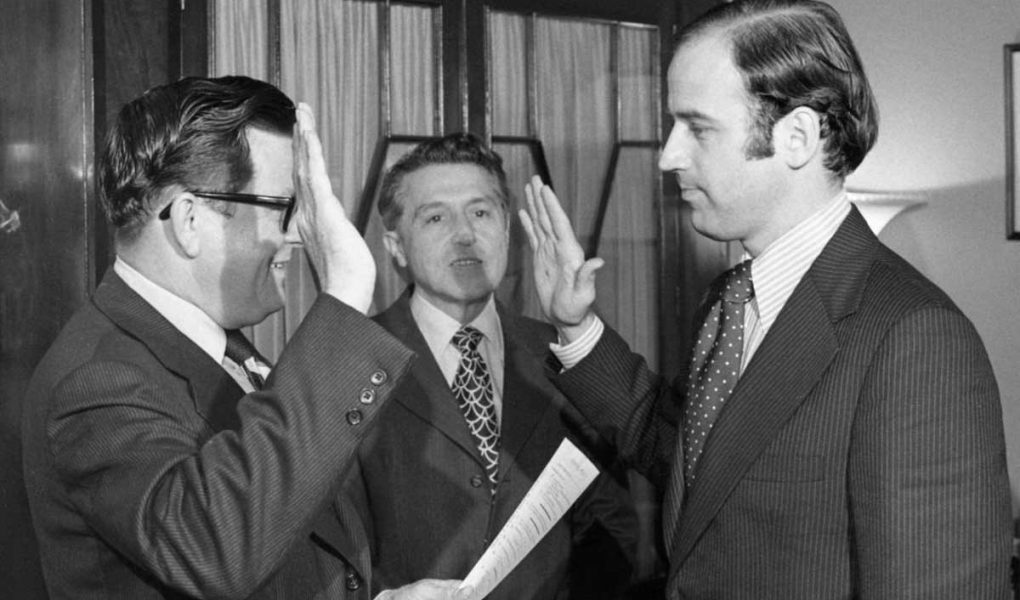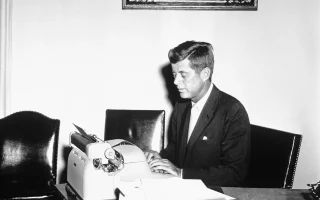kimzolciakwedding.com – Joe Biden, the 46th President of the United States, is a political figure whose career spans over five decades. Before ascending to the presidency, Biden served as a U.S. Senator from Delaware for an impressive 36 years. His tenure as a senator was marked by his commitment to public service, leadership in key legislative areas, and dedication to the people of Delaware. This article delves into Joe Biden’s time as a U.S. Senator, focusing on his political journey, legislative accomplishments, and the challenges he faced along the way.
Early Political Career and Election to the Senate
Joseph Robinette Biden Jr. was born on November 20, 1942, in Scranton, Pennsylvania. His early life was shaped by working-class roots, and he moved to Delaware with his family at the age of 10. After earning his law degree from Syracuse University College of Law in 1968, Biden began his career in law and politics. He entered the political scene in 1970 by running for the New Castle County Council, where he served for a short period before making his historic run for the U.S. Senate.
Biden’s entrance into national politics came in 1972 when, at the young age of 29, he decided to challenge the incumbent Republican Senator, J. Caleb Boggs. Despite being relatively unknown and facing the odds stacked against him, Biden’s campaign focused on issues important to the people of Delaware, including civil rights, education, and economic opportunity. His strong connection with voters and effective campaign strategy led to an unexpected victory, making him the fifth-youngest person ever elected to the U.S. Senate.
Tragedy and Triumph: A Personal Loss
Biden’s early years in the Senate were marked by personal tragedy. Just weeks after his victory, in December 1972, Biden’s wife, Neilia, and their one-year-old daughter, Naomi, tragically died in a car accident. His two sons, Beau and Hunter, were seriously injured but survived. Biden considered resigning from the Senate to focus on his family but ultimately decided to continue serving, a decision that was deeply influenced by his determination to fulfill his responsibilities to the people of Delaware.
His personal loss would become a defining part of his character and political career. Biden became known for his empathy and ability to connect with people, traits that resonated with many throughout his time in public office. His ability to overcome personal hardship while serving in the Senate helped solidify his reputation as a resilient and dedicated leader.
Biden’s Legislative Record in the Senate
During his 36 years in the Senate, Biden made significant contributions to a wide range of policy areas. Known for his centrist views and willingness to work across party lines, Biden played a pivotal role in shaping key legislation that impacted American society.
1. Foreign Policy and National Security
Biden’s tenure in the Senate coincided with a period of significant global change. As a member of the Senate Foreign Relations Committee, Biden became known for his expertise in foreign policy and national security. His work on issues such as arms control, international diplomacy, and counterterrorism helped shape U.S. foreign policy for decades.
One of Biden’s most notable accomplishments was his role in the passage of the 1994 Violence Against Women Act (VAWA). He championed the law, which provided federal resources to combat domestic violence, sexual assault, and other forms of abuse. The legislation not only had a lasting impact on law enforcement and legal proceedings but also served as a critical step forward in recognizing the importance of protecting women’s rights and addressing gender-based violence.
Biden also played a major role in shaping U.S. policy toward the Middle East, particularly during his tenure as chairman of the Senate Foreign Relations Committee. He advocated for strong international alliances, including NATO, and was deeply involved in shaping the U.S. response to conflicts such as the Gulf War and the Balkans conflict.
2. The Crime Bill and the 1994 Crime Bill
As one of the principal architects of the 1994 Crime Bill, Biden’s involvement in the legislative effort to combat rising crime rates in the 1990s was a defining moment in his career. The bill aimed to address concerns about violent crime and included measures such as the expansion of the death penalty, mandatory minimum sentences for certain offenses, and the allocation of funding for law enforcement agencies to hire additional police officers.
While the bill received significant support at the time, it later became a point of controversy due to its connection to the mass incarceration problem that disproportionately affected African American and minority communities. In recent years, Biden has acknowledged the bill’s unintended negative consequences and has expressed his commitment to criminal justice reform. Nonetheless, the Crime Bill was a central piece of his legislative legacy during his Senate years.
3. Judiciary and Supreme Court Nominations
Biden also had a significant impact on the judicial landscape during his Senate tenure, particularly as Chairman of the Senate Judiciary Committee. In this role, Biden played an essential role in the confirmation hearings for several Supreme Court nominees. Perhaps most notably, he was involved in the contentious hearings for Robert Bork in 1987, where he helped lead the opposition to Bork’s nomination due to concerns over his judicial philosophy and views on civil rights.
Biden also played a major role in the confirmation process for Clarence Thomas, whose appointment to the Supreme Court was marked by allegations of sexual harassment. Biden, as Chairman of the Judiciary Committee, faced criticism for how the hearings were handled, but he defended his actions in the process. In addition to his work on Supreme Court nominations, Biden was instrumental in confirming numerous federal judges who shaped the U.S. judiciary during his time in office.
4. The Affordable Care Act
While Biden was not directly responsible for the creation of the Affordable Care Act (ACA), his role in advocating for healthcare reform during his Senate tenure laid the foundation for later efforts. Biden’s early work on issues related to healthcare, including efforts to expand access to care for low-income families, contributed to the broader national conversation about healthcare reform. Later, as Vice President under President Barack Obama, Biden would play a key role in the successful passage of the ACA in 2010.
5. The Bankruptcy Abuse Prevention and Consumer Protection Act of 2005
Biden’s record on financial and consumer protection issues is also noteworthy. As a senator, he supported the Bankruptcy Abuse Prevention and Consumer Protection Act of 2005, a bill that made it more difficult for consumers to discharge debt through bankruptcy. While the bill received strong support from the financial industry, it was criticized by some as being too favorable to credit card companies and banks. Biden’s stance on this legislation reflects his complex relationship with financial regulation during his time in the Senate.
Legacy and Final Years in the Senate
By the time Joe Biden left the Senate in 2009 to become Vice President under Barack Obama, he had built a legacy of pragmatic leadership, bipartisanship, and deep engagement with the issues of the day. His long tenure in the Senate was characterized by a willingness to work with both Democrats and Republicans, making him a respected figure in Washington. Despite his focus on consensus-building, Biden was also known for his tenacity and his ability to stand firm on key issues.
Biden’s final years in the Senate saw him focusing more on foreign policy and international relations, with a particular emphasis on Iraq and Afghanistan. His departure from the Senate marked the end of an era, but his impact on American politics would continue, first as Vice President and later as President.
Conclusion
Joe Biden’s time as U.S. Senator from Delaware was a period of significant accomplishments, challenges, and growth. Over three decades in the Senate, he demonstrated a deep commitment to public service, playing pivotal roles in domestic and international policy, from foreign relations to criminal justice reform. His legacy as a senator was built on bipartisanship, pragmatic solutions, and a dedication to the American people. Biden’s experience in the Senate helped shape the leader he would become as Vice President and, ultimately, as President of the United States.

